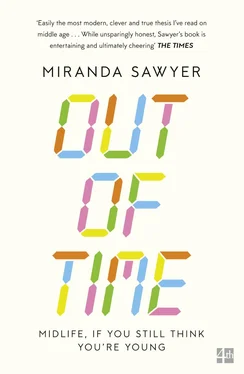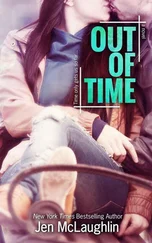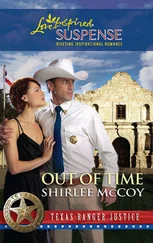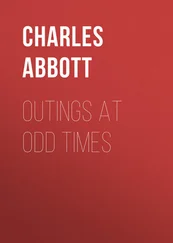Also in the 80s, Jim Conway, a US pastor, wrote several books about midlife crisis, including one on the midlife crisis of men, and another, with his wife Sally, on the female version. The books are great at pinpointing the feelings of intense inadequacy in men in their forties, the desire to jack everything in – family, work, house – and go driving across the country … But they are not so hot on their wives.
In Women In Midlife Crisis , Conway (Jim) writes this: ‘When I was going through my midlife crisis, Sally was teaching school Monday through Friday. My day off was Monday. In order to be available to be with me, Sally resigned from teaching so that we could get away more frequently for the recuperation and reflection time that I needed.’ Good old Sally, eh? Must have loved those jolly Mondays.
Pauline Bart made a study of 533 American women aged between 40 and 55, who were in psychiatric hospitals for depression but had no history of mental illness. Her conclusion was that the women were depressed because they ‘had lost the companionship of their children, they had fewer people to shop or cook or clean for, they had been brought up to fulfil themselves through their homes and families, they had no qualifications, had gained no work experience for many years, had no confidence, low self-esteem and nothing to look forward to’. It was 1971. At that time, the greatest users of anti-anxiety drugs were women aged between 45 and 54.
I read William Bridges’ Transitions, Making Sense of Life’s Changes . In it, a man says: ‘I feel as though my whole life was built on a frozen lake. We all go on with our activities. We work on the house and play golf and entertain and have our fights. I put in long hours at work and think I’m doing well. Then every once in a while I think, This is ice I’m standing on, and it’s melting – or Was that a crack I heard just then? I try to forget, but I keep thinking, Damn, that ice looks thin!’
I read The Middle Passage: From Misery to Meaning in Midlife , by James Hollis. He writes, ‘Anyone in midlife has witnessed the collapsing of projections, of hopes and expectations, and has experienced the limitations of talent, intelligence and, often, of courage itself.’
I look up funny quotes. ‘Midlife is when you reach the top of the ladder and find that it was against the wrong wall’: Joseph Campbell. ‘The really frightening thing about middle age is that you know you’ll grow out of it’: Doris Day.
I think about how to write this book. I think: Wouldn’t it be great if the book itself had a midlife crisis? If it collapsed in the middle, started doubting itself and the way it had gone about its life so far?
Why are there so many funny midlife books these days? Has midlife crisis become so ingrained as a cultural joke that it’s hard not to mention it without us laughing? It’s like saying ‘farty poo bum’ to a five-year-old, or showing a picture of a dial-phone to a teenager. Ho ho, I know this one. The very concept is hilarious.
I say to people, ‘I’m writing a book on midlife crisis,’ to see if they laugh. They do. Some of them say, ‘Hey, interview me!’ Some say, ‘Interview him!’ and point to their friend or husband. But all of them laugh. Then they define themselves against it. They haven’t bought a sports car (they’ve bought a fixed-wheel bike). They’re not leaving their wife for the twenty-something secretary (she’s in PR and she’s 31). They’re not stuck in the same job they’ve always had (they’ve started teaching younger people how to do that job). They’re still in love with their partner (they just don’t have sex). Ha ha ha.
After a while, I realize they’re trying to hide their embarrassment. We are easily shamed in the UK and middle age is so cringe-making that we have to deflect it with a joke. Not only because to admit that you care about it is to admit a reprehensible weakness of character – can’t you go marching gladly into your middle years without making such a fuss? – but also because we will not accept that we have anything to do with the crisis part, that uncool state of being.
And so we all define ourselves against it. I say ‘midlife crisis’ to people and they point at others. Or they pick out the easy parts: the buying of gadgetry, their kids becoming obsessed with their old vinyl. They deny that the truths of middle age, the darker implications, might actually apply.
I wonder, though, if the jokes are getting in the way. They help us skim over the sadness, they mask our bewilderment, and the other option – despair – is hardly appealing. But the MLC jokes remind me of other funnies, the ancient ones, the take-my-mother-in-law gags, the anti-gay or racist one-liners. Comedy shows us where our fears lie.
I have a meeting with a TV commissioning editor. He laughs and says, ‘I don’t believe midlife crisis exists!’ He is wearing an earring, has split up with his wife and is dating someone fifteen years younger. I should have asked him if he had a new bike.
‘Have you had a midlife crisis?’ I ask S, who is a bit older than me. He was married before, and has two older children, who are adults themselves now, married, settled down.
‘Nah,’ he says. ‘I had my crisis when I was 21. When D was born. Dad said to me at the time,’ (I know this story), ‘“Ah, the toothpaste’s out of the tube now, son.” You can’t push a baby back inside. You bring a child into the world and your life stops being about you.’
Yes, but that’s part of it, I think. The terror, and the tedium, and the sheer delight of your children. And you, knowing they will go.
I keep reading. It turns out that there are a lot of people – distinguished academics, psychotherapists – who insist that midlife crisis is not a thing. After all, unrealized goals, lack of self-determination and physical changes are not problems exclusive to forty-somethings: you can run up against them at any stage in your life. The academics point out that middle age is tricky, busy, overwhelming, but that doesn’t mean there’s a crisis. Nothing to see here. It’s just middle age.
Also, a crisis tends to be triggered by an event: a parent dying; losing your job; a long-term relationship breaking up; having a child, or the children leaving home. Any one of these upsets can trigger a sudden shift in thinking, a shaking of the foundations of your life. Which is what happened to S, in his early twenties.
But S is becoming an anomaly. These days, more children are born to women of 35 and over than to women under 25. And most of these crisis-triggering events occur around middle age, that busy time.
And, like I say, we make jokes about midlife crisis. This is the greatest evidence for its existence. Jokes are how the British acknowledge anything fundamental. If it wasn’t important, we wouldn’t be laughing about it.
Somewhere inside, I seem to believe that middle age should be the pinnacle of life, the moment when all your previous efforts add up to something meaningful and you find yourself at the top of the mountain. I mention this to a friend, psychotherapist Philippa Perry, and she says: ‘That’s only a metaphor. Why not change it?’
For a while I try to imagine life as a long climb to the ultimate summit. But then I start noticing all the studies that indicate a different shape. Every time I find a piece of empirical research, it insists that, when it comes to our lives, happiness is U-shaped. Across several nations (Australia, Germany, the UK, others) the saddest time is in middle age. We’re full of joy when very young and very old, but struggle badly with the time in the centre. We go through our forties at our lowest psychological ebb. Some of the studies pinpoint 47 as our unhappiest age; some say 44. But it’s always in our forties.
Читать дальше










